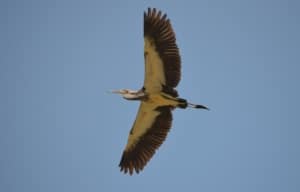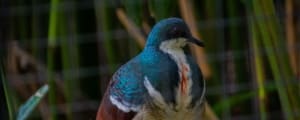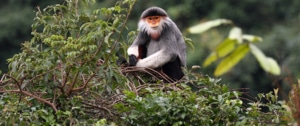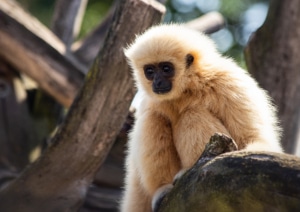Ashoka Trust for Research in Ecology and the Environment (ATREE)
The Ashoka Trust for Research in Ecology and the Environment (ATREE) is a non-profit organisation which generates interdisciplinary knowledge to inform policy and practice towards conservation and sustainability in India.
At A Glance
- Programme: Asian Species
- Years Funded: 2019, 2021, 2022, 2023
- Ecosystem Focus: Rivers
- Geographic Focus: India
- Website: https://www.atree.org/
The Ashoka Trust for Research in Ecology and the Environment (ATREE) is a non-profit organisation which generates interdisciplinary knowledge to inform policy and practice towards conservation and sustainability in India.
For over two decades, ATREE has worked on social-environmental issues from local to global policy levels. ATREE envisions a society committed to environmental conservation and sustainable and socially just development. Its mission is to generate rigorous interdisciplinary knowledge for achieving environmental conservation and sustainable development, to enable the use of this knowledge by policy makers and society, and to train the next generation of environmental leaders.
ATREE works across issues like biodiversity and conservation, climate change mitigation and development, land and water resources, forests and governance and ecosystem services and human well-being. Two research centres, the Centre for Biodiversity and Conservation and the Centre for Environment and Development, together with the Academy of Conservation Science and Sustainability Studies, provide the structure to conduct insightful research that fuels its thought leadership on policy issues and drives its capacity building activities.
ATREE’s six programmes integrate applied research, policy interventions and social action. Its researchers work across the social and natural sciences to generate socially relevant, interdisciplinary knowledge in conservation science and sustainability studies. This knowledge is the communicated through a variety of media to influence policy both with decision makers as well as civil society. ATREE also works with local communities in many geographies to implement projects that benefit both livelihoods and the environment.
Synchronicity Earth’s Asian Species Programme has supported ATREE’s work on the Critically Endangered white-bellied heron, sometimes also called imperial heron (Ardea insignis). The biggest challenges to conserving the white-bellied heron is that the species occurs at low density and the known population is far too small for long-term survival.
When last assessed in 2018, the remaining number of mature individuals remaining in the wild was estimated between 50 and 249 but the real number is likely to be close to a few dozen. In India, the white-bellied heron is known to occur in Assam and Arunachal Pradesh. However, with huge potential habitats unexplored and with the elusive nature of thew bird, it is possible that India might host the largest population of the species. ATREE works together with global and local experts and the IUCN SSC Heron Specialist Group (which is coordinated by a member of Synchronicity Earth’s staff) to prioritise sites in India that warrant intensive white-bellied heron survey efforts, while also supporting grassroots conservation efforts on the ground.
North-east India has many superficially suitable habitats for the white-bellied heron. With the help of organisations such as ATREE, new populations might be discovered, and the species might still be able to recover.


















